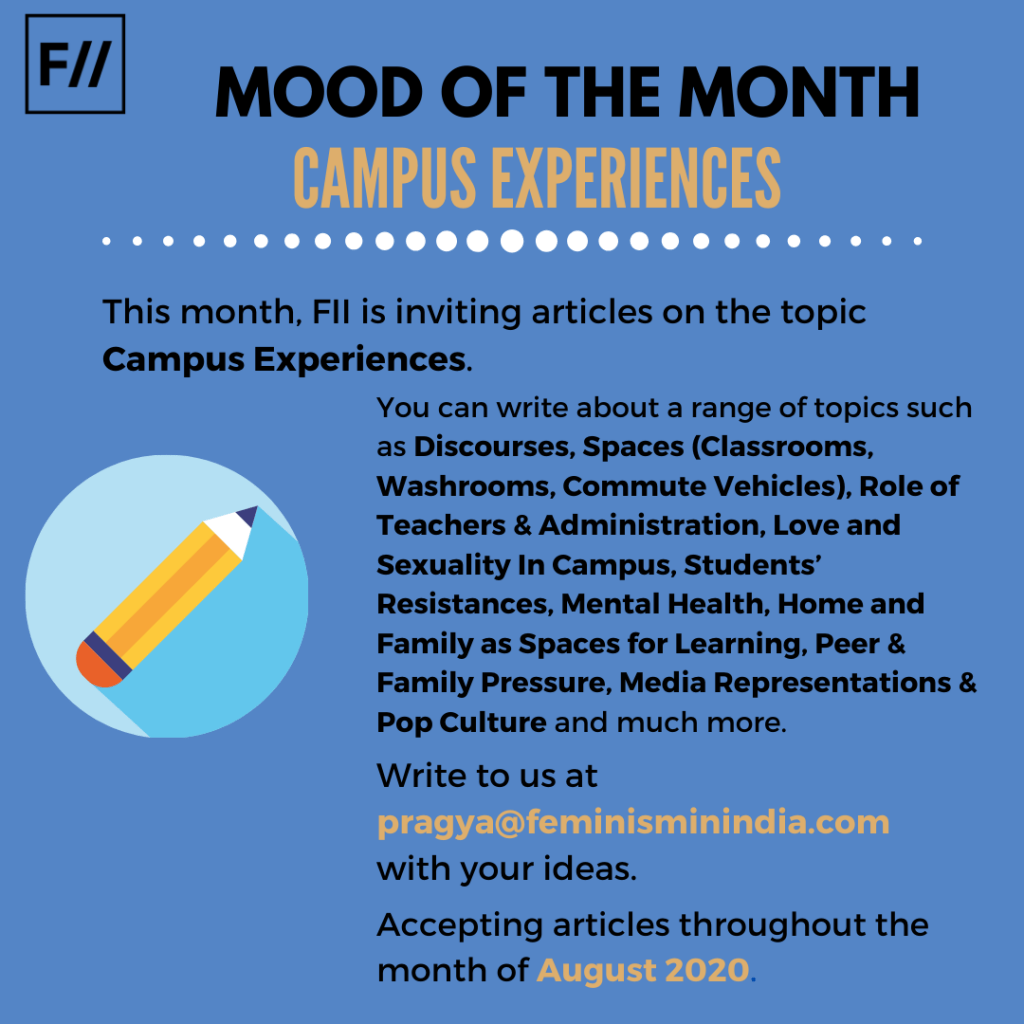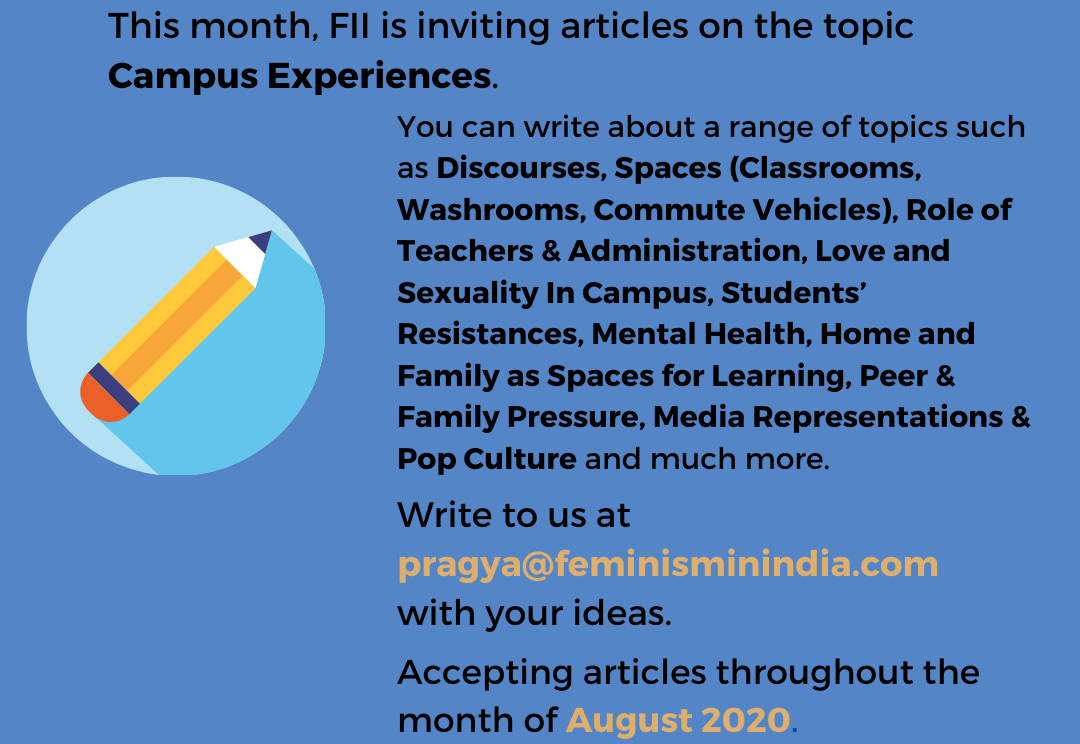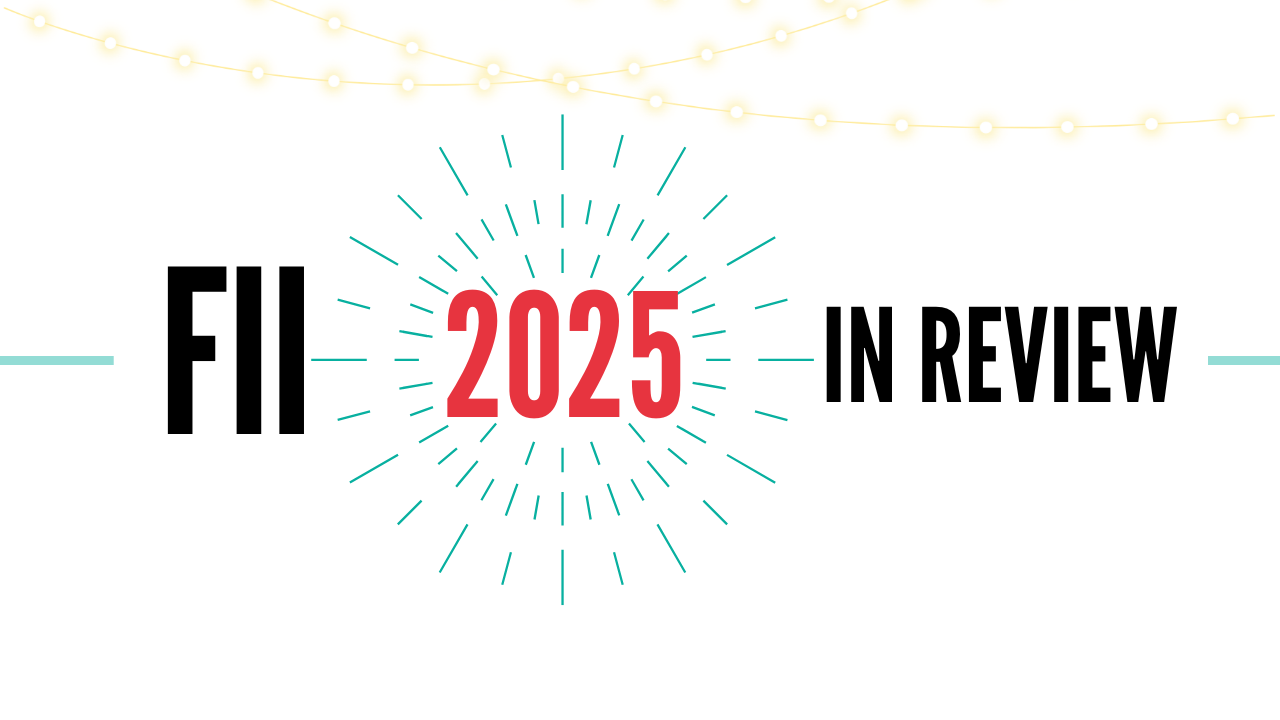Education is possibly one of the most important social institutions that promise positive social changes in our society, especially when social order is at stake. However, often spaces for learning like our campuses can proliferate and shelter existing social inequalities in our society. More so, they can dictate the terms of the ‘desirable’ social order and exploit the oppressed to work towards the agendas of people with power for maintaining their often undemocratic, even sometimes autocratic status quos.

Since we are introduced to education and its institutions very soon in our lives and often for some, the journey is an unending one, where knowledge and learning become an essential and indispensable part of their living, a diverse range of experiences accompany throughout and beyond their engagement with an institution, the people they meet, the books and study materials they read and the spaces they interact within. These can be productive or constructive, or can be obstructive, demotivating and at extreme cases, even fatalistic for some people.
Also read: Harassments On Indian Campuses And The Apathy Of ICCs
Education and its institutions can be gendered, classist, ableist, sexist and parochial spaces of learning as much as they are a space for literacy and development. It is important to document even the most seemingly progressive spaces in our society, because they too are riddled with different kinds of prejudices that might not be overtly discernible.
It is to note that when we say ‘campus’, we do not only refer to the conventional educational spaces such as schools, colleges and universities, but your private tuitions, home-learning spaces and religious educational institutions are also very much a part of your campus experiences. This is because not only have we been able to move out of traditional spaces of education and move into more modern, state/corporate regulated ones, but conversely, we also have preserved traditional methods of learning and unlearning, along with arrangements where both the private and the public spaces of education overlap (such as coaching facilities offered by various individuals or organisations).
For August 2020, FII is looking for article submissions on the topic of Campus Experiences, to highlight the diverse range of encounters we often confront when we are a part of any educational institution or space for learning be it schools, universities, colleges, tuitions and home. Here are some possible pointers which might help you write your articles,
- Intersectionality—Caste, Class, Gender, Disability, Sexuality, Conflict In Educational Spaces—Access, Discrimination, Support etc.
- Books, Discourses and Other Materials For Education
- Violence (Physical, Mental, Sexual, Symbolic) In Educational Institutions
- Violence in the Society And Its Impact on Education
- Spaces (Classrooms, Washrooms, Commute Vehicles)
- Health and Drugs Influence/Abuse
- Architecture and Buildings of Educational Spaces
- Positive Learning Experiences And Mentors
- Pressure: Peer, Family, Society (The issue of merit)
- Love and Sexuality In Campus
- Funds, Scholarships and Finances For Education
- Slut shaming and Body Policing
- Students’ movements, protests and other resistances
- Value Education and The Ethics and Morality Discourse
- Religious Institutions and Education (Convents, Madrassas, Gurukuls)
- Role of Teachers, Administration and Authority
- People In Campuses (Janitors or Sanitation Workers, Commute Facilitators)
- Home and Family as Spaces for Learning and Unlearning
- Law and Policy In Educational Institutions
- Role of the State
Also read: Exclusion In Education: Whose Campus Is It Anyway?
You can send us your submissions to pragya@feminisminindia.com. This list is not exhaustive. Please feel free to write about other topics, which we might have missed listing. We understand that some of you might be uncomfortable writing about your personal experiences. You can let us know in your submission mail whether you would want to remain Anonymous when we publish your articles.
About the author(s)
Feminism In India is an award-winning digital intersectional feminist media organisation to learn, educate and develop a feminist sensibility and unravel the F-word among the youth in India.




